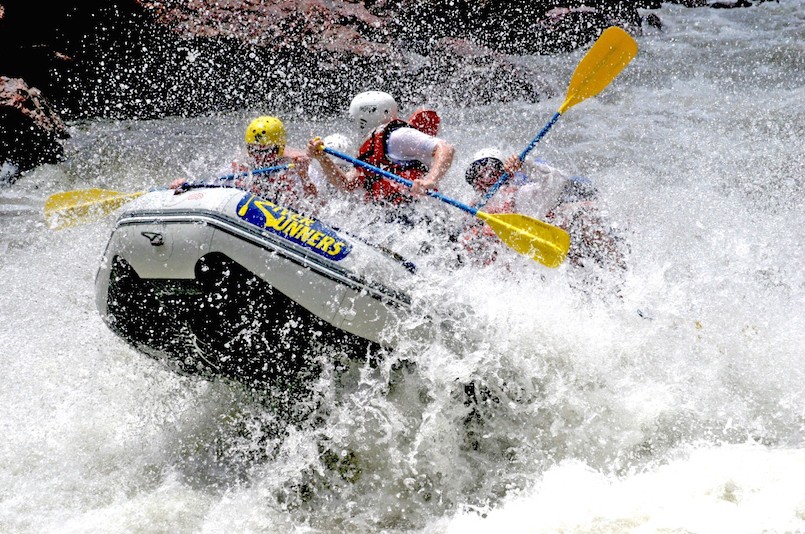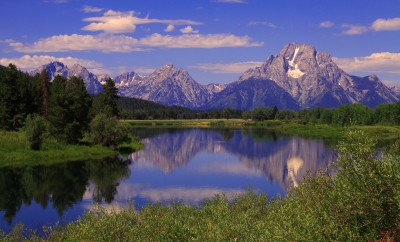
Image: sport-kid.net
For some people, the idea of going on a white water rafting trip can conjure up images of Meryl Streep in “The River Wild,” or Burt Reynolds in “Deliverance.” Concerns about a raft flipping over, or the fear of falling out of the raft, can frighten some would-be vacationers, keeping them on dry land while millions of others are flocking to this increasingly popular adventure trip every year. What are the real risks in whitewater rafting? And the real safety statistics? You might just be surprised.
Consider, for example, the Lehigh River in the Pocono Mountains of northeastern Pennsylvania … one of the most popular whitewater vacation destinations in America. Guided whitewater rafting trips were introduced there in 1975, by an outfit named Whitewater Challengers. Today, four professional whitewater outfitters offer daily rafting trips on more than 25 miles of whitewater rapids in the Lehigh Gorge State Park. Over the past three and a half decades, professional whitewater rafting outfitters have hosted over 3 million rafting visitors on more than 25 million miles of guided whitewater rafting trips (the equivalent of going to the moon and back, 52 times!), racking up an impeccable safety record in the process.
In spite the lingering angst have about signing up for what some people still call an “extreme” sport, the truth is, a guided whitewater rafting trip down the Lehigh River is statistically safer than getting into your car and driving there. There are several reasons that whitewater rafting outfitters can compile such remarkable safety records, including:
There are guided whitewater rafting trips
Professional whitewater rafting guides are with you all day. They know the river; they know the hazards; they know the best route through the whitewater; they know how to help you avoid mistakes; and they know what to do if it looks like things might start to go wrong. For example, at Whitewater Challengers, guides receive training in swift water rescue, Red Cross first aid (standard and advanced) and CPR. In addition, they accumulate thousands of hours on the river, becoming familiar with every section of whitewater at each of dozens of different water levels. This is important because two trips down the exact same section of river at different water levels can result in dramatically different levels of excitement.
2. You’re in a whitewater raft, not a canoe
If you try this sport in a whitewater canoe or whitewater kayak, and it’s a whole different ball game. Professional whitewater rafts are designed with two things in mind: not tipping over; and not puncturing. A properly constructed commercial-grade whitewater raft will bounce off most boulders, and keep a steady course in remarkably turbulent water. In most places, you can float through the whitewater rapids forwards, backwards or even sideways, and it’s all just part of the fun. If you do that in a canoe, a kayak, or a flimsy swimming pool raft, the results can be disappointing, to say the least.
3. You’re wearing a whitewater PFD (personal flotation device)
It’s surprising how many people who take the do-it-yourself approach to whitewater rafting either fail to use the right kind of raft, or fail to wear a PFD. On commercially guided whitewater rafting trips, wearing a PFD isn’t an option; it’s a requirement. And if you so much as unbuckle the straps, the first rafting guide who notices it will be gently reminding you that putting yourself at risk that way just “isn’t acceptable.”
4. Teaching and training are part of the package
A guided whitewater rafting trip begins with what’s called a “Safety Talk.” Your rafting guide goes over all the basics: how to properly sit in the raft; how to hold your paddle; how to splash your friends safely; how to help steer the raft; how to float through whitewater if you happen to fall into the drink; and most importantly, how to avoid falling in. There’s also information about rescue techniques that are used in the event you do find yourself in the river. Most safety talks are also sprinkled with time-tested river humor, and a dose of interesting information about the history, the geology, the flora and fauna of the river and its surroundings.
5. And finally, there’s always medical training and supplies at the ready
In the unlikely event something does go wrong, whitewater rafting guides are trained in first aid, CPR and swiftwater rescue, they have with them first aid supplies if needed, and they are supported by a network of land-based Lehigh Gorge State Park officials who can help effect a rapid evacuation if needed.
With upwards of a hundred thousand people a year going whitewater rafting on the Lehigh River alone, and millions more on hundreds of professionally outfitted whitewater rivers around the world, it might be time to stop thinking of this as an “extreme” sport, especially since a large percentage of those rafters are school groups, boy and girl scout troops, church youth groups, and families with young children. The statistics tell the story. With the right gear, the right instruction, and the right supervision, your time spent on a whitewater rafting trip can be the safest part of your day.



0 comments